Late Tang, Part 1: The Eunuch Kingmakers: 晚唐之初- 王守澄
During the decline of the Tang dynasty, the weakened Tang Emperors became hostages under house arrest by their powerful eunuch handlers. For almost a century, true power within the imperial palace complex laid in the Eunuch Bureau (內侍省, Neishi Sheng) rather than the abode of the residing emperor. The dying heart of the empire became like the dark side of the moon to its people.
The traitors have all been gathered in one courtyard. This is the moment the patriots had long been praying for- sharpening their swords for, the gap in the traitors' impenetrable web. One lone blow that will liberate His Majesty and his house. When the moment the Emperor let his façade slip, there will be a war against all of his handlers under his very own roof. One lone chance, one lone blow, of two different worlds between his freedom and that of his children- the restoration of Tang dynasty.
THE IMPERIAL HOSTAGES
During the decline of the Tang dynasty, the weakened Tang Emperors became hostages under house arrest by their powerful eunuch handlers. These eunuchs, who often also commanded the imperial Shence Army 神策军 effectively became kingmakers, freely slew any emperor that challenged them and transformed the imperial palace and the capital into a forbidden enclave of their control.
For almost a century, true power within the imperial palace complex laid in the Eunuch Bureau (內侍省, Neishi Sheng lit. "Ministry of Internal Affairs" ) rather than the abode of the residing emperor. The dying heart of the empire became like the dark side of the moon to its people.
In this article, we will cover one of the most defining events that heralded the last chapter of Tang dynasty history, where boiled currents exploded in violence right within the imperial palace. You will see what a desperate bid for liberation- even from Tang's highest members looked like.
THE STRIFE RIDDLED MID TANG(766-835)
After the vigorous expansion of the Early Tang and the apogee of the High Tang. An accurate description of some 7 decade period of the Mid Tang was that Tang struggled to hold its position against these enemies, with mixed results. It was the Autumn of the Tang dynasty.
CLASH OF EMPIRES + WARLORDS UNDER ROOF
Our story took place in the last days of the strife- riddled Mid Tang(766-835)period , as defined by modern historians. For context, Mid Tang began immediately in the aftermath of the catastrophic An Lushan Rebellion, where some have estimated that some 13- 36 million people perished or roughly 1/10th or 1/6 of of the total global population (although the more liberal 36 million- ie 1/6 of humanity was highly unlikely). The rebellion was catastrophic to the empire, the heartland of the empire was ravaged, and the Tang treasury and manpower was exhausted. While the Tang military leadership were busy stamping out the last remnants of An Lushan's rebels, the Tibetan Empire~ Tang's long time rival invaded in full force from the west and utterly devastated Tang's western holdings in the Hexi Corridor and the Tarim basin.
The Tang lost half of the empire in territory and nearly all to the west of modern Shaanxi Province was lost to the Tibetans in the next 30 years of bitter losses. In order to fully redirect its attention to the more pressing Tibetan Empire in the west, the Tang pardoned the last remnants of the An Lushan rebels in the east (mostly located in what is today's Hebei and Liaoning region.) They would instead became vassals with a high autonomy of freedom aloof of Tang control and have its own armies and hereditary ruling dynasties. Now? in each of these renegade circuits there was essentially a king with his own private army. During this era, the Tang faced enemies both within and beyond its boarders. It's successes and failures were mixed.
Mid Tang: Map of the Tang dynasty in 779 shortly after the ascension of emperor Dezong of Tang. Yellow represents the Tang empire, blue represents contested western territories lost to the resurgent Tibetan Empire, red represents the highly independent military circuits under the command of ambitious and autonomous warlords called Jiedushi. The Tang emperors at this time were not only threatened externally by repeated Tibetan incursions but also by these ruthless vassals, who at times were even brazen enough to slay the emperor's own chancellors right in the capital.
IMPERIAL SERVANTS BECAME ITS TRUE MASTERS
Towards the last days of this period, real power of the throne slowly coalesced around an unexpected element within court, that of the eunuchs. During the reign of the ambitious Mid Tang emperor Dezong, he had attempted to roll back the lost imperial territories from the Jiedushi warlords, however, they allied with each other and repelled the imperial army, defeating them in the field. Despondent and dissapointed, Dezong fell into a deep depression of apathy and delegated much of his authority to the hands of a few of his trusted eunuchs. Dezong had long distrusted his ministers so his empowering of the eunuchs inadvertently ushered in some 70 years of strong eunuch influence in the Tang court.
Atop of the foreign threats, warlords threats, now the Tang emperors found a new caste of enemies right under the very roof of the imperial house: his eunuchs.
IMPERIAL ARMY THEN CAPITAL BECAME HOSTAGE
Elite Imperial Army: Tang dynasty cavalryman in heavy lamellar armor. He carries a long cutting saber with a ringed pommel and has an arrow case slung to his side. Excavated figurines of these cavalry men depicted them astride armored horses.
RISE OF THE EUNUCHS
WANG SHOUCHENG- THE GRAY ENIMENCE
A figure that showed just how much previously unimagined power the eunuchs held was Wang Shoucheng 王守澄, much of his early lives- like most eunuchs were unrecorded. However, like all who are worthy of their mark on history, it was Wang's (destructive) skills that etched him in history. We first saw him play a prominent role around the death of Mid Tang's best emperors: Xianzong. Xianzong's reign, especially in consideration of the internal and external pressures suffered by the Mid Tang was one of taking the fights to Tang's enemies. Integrally, he vigorously provoked a series of wars with the outlying warlords and dragged nearly all of the defeated provinces- kicking and screaming, then ultimately obediently back to the imperial fold.
Triumphant Restoration: An aggressive conqueror who took the fight to the empire's wayward warlords and repeatedly emerged victorious. Xianzong restored the lost imperial prestige and reclaimed all of the lost provinces that were run by warlords. During his reign he initiated many policies to fully assimilate these lost warlord provinces to put under permanent direct rule of his house.
For the first time in some 40 years, Tang re- stabilized, economy and culture again flourished, and had near total restoration of its territories and capabilities. Later historians referred to Emperor Xianzong's reign as the Yuanhe Restoration (元和中兴). As someone who would be retroactively deemed by historians as a benevolent autocrat, he kept his power close to his centralized grip and did not relinquish it to the cabal of ministers whose loyalties often shifted between the emperors and the warlords. Instead, Xianzong used loyal eunuchs as his key generals and key ministers. Unfortunately, almost like a Greek Tragedy~ for such a willful figure, whose centralized power was absolute and who had spend his entire reign striving for his house, he was undone by none other than his own house.
XIANZONG ASSASSINATED
Music: House of Spirits
In spring 820, Xianzong died suddenly in the palace, historians have long suspected that he was poisoned to death at the instigation of his wife Imperial Consort Guo through the eunuch Chen Hongzhi. However, more critically, Wang Shoucheng was also believed to have been involved. This was likely done to ensure that Consort Guo's own son would inherit the throne rather than the true heir Li Yun that Xianzong had originally intended. On this aspect, Consort Guo's schemes overlapped with the eunuch faction: who regarded Xianzong's heir and eldest surviving son Li Yun threat to their hold on power. By contrast, the son of Guo was a weak willed wastrel who is not interested in governing at all and was poorly prepared for ruling. This combination meant that they could still keep all of the powers Xianzong invested in them without the danger of have them stripped away. Despite the fact that a powerful and diligent eunuch who was personally loyal to Xianzong: Tutu Chengcui 吐突承璀 of Xianbei extraction loyally defended Li Yun and petitioned for him to ascend, Tutu Chengcui and Li Yun were both killed and Consort Guo's son made the heir.
THE SILENT CIVIL WAR OF EUNUCH FACTIONS

After this act was done- and with the ascension of Consort Guo's own son (the future Muzong) as Emperor, Consort Guo became the Imperial Dowager Empress Guo and became a coiled dragon inside the court. Due to her longevity she would live a very long life and witness FIVE successive emperors swiftly succeed each other while she presided as the Dowager Empress- then, as the body count of the Emperors wracked up, simply Grand Dowager Empress, for no other Empress would had the time to have accumulated enough power to challenge her influence.
Like the long lived Dowager Cixi Empress of Qing, Dowager Empress Guo wielded immense powers within the court and often intervened in the drafting of imperial edicts and played matchups to entrench her power. During her long tenure, a carousel of short reigned (and short lived emperors) died and Tang imperial power degenerated into merely puppets of the eunuchs.
For the empire, 820s and 830s were a period of calamity. As soon as Xianzong died, the former warlord's provinces again began to slip away. Dowager Empress Guo's son Muzong also turned out to be one of the absolute worst Tang emperors. Muzong did not attend his duties at court and spent nearly all of his time feasting and carousing. During his reign nearly all of the gains made by Xianzong was lost as the warlords north of the Yellow river rebelled and reasserted their independence. ...Calamitous for the empire that is, for within the court itself, the eunuchs greatly prospered as the true sovereigns' power wilted. Xianzong's sudden death had landed them a windfall of power- the reins over the Shence Army and control of the imperial palace, which none were empowered to remove from them. Here, the eunuch's power became unchallenged, and Wang Shoucheng made his name as a handler of the emperors. Later, he would even raise his station further by assuming the position to pass key imperial edicts.
KINGMAKER OF THREE EMPERORS
Kingmaker: in the long shadow of a dead strong emperor, powerful figures such as Wang Shouchenge emerged as the handlers of the emperors. Because the eunuchs were keen to retain their power, they often only allowed weak willed and poorly prepared emperors to ascend the throne. Such emperors often knew well that they owed their station to the intervention of these kingmakers and did not dare to challenge their endless "suggestions," which were then translated as imperial policies. The empire began to rot from within, and the warlords on the frontiers became totally aloof.
During the idle Emperor Muzong's reign, Wang Shoucheng became one of the two palace secretaries general (Shumishi). To secure his hold, Wang forged a personal alliance with the chancellor Li Fengji. Two of them effectively controlled the key policy decision of the empire, Li controlled the apperatus of the state, while Wang was able to- in light of the apathetic and degenerate secluded Muzong, act as a stand in for the emperor and the imperial house.
Wang Shoucheng was said to be very powerful and involved in affairs of state, such that in 823, the official Zheng Quan was able to beg Wang and be appointed the military governor of Lingnan Circuit (岭南, headquartered in modern Guangzhou, Guangdong). During this era, provincial governors- even warlord jiedushi vassals- despite their growing autonomy, still could only attain their position (or in the case of jiedushi warlords, inherit and retain their father's positions) by imperial approval and appointment. What Wang did was nothing less than acting as the emperor himself. As previously mentioned, during Muzong's disastrous rule, 3 very key circuits (provinces) which were previously subdued by Xianzong declared their independence. Despite these losses, the enunchs' powers became further entrenched within the palace.
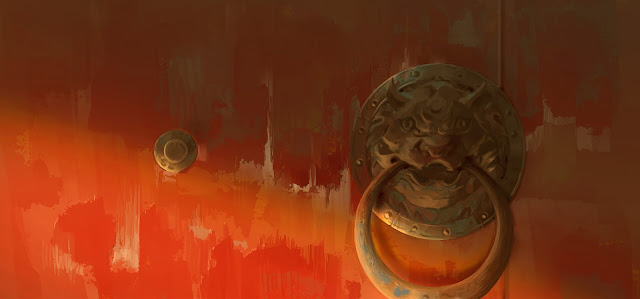
An idle youth: In 824, merely 4 years after ascending the throne, the wasteful and idle Muzong died, to be replaced by another wasteful and idle successor, his son Li Zhan, whose regnal name was Jinzong. A teenager, the 15 year old Jinzong was a degenerate and frivolous ruler just like his father and spent nearly all of his time hunting and feasting.
True to his status as a teenager, he missed attending court often and frequently made his ministers wait for him for hours before showing up for court duties. His major policies being giving the eunuchs even more control and lavish gifts in an effort to ingratiate himself to them.
JINZONG'S ASSASSINATION AND GREATER INFLUENCE
Around the new year 827, after reigning less than four years, the young Jingzong was assassinated by a group of conspirators who were his Polo game attendants during a hunt. Jingzong was only 17 when he was slain. Jinzong's short and insignificant reign, compounded with his sudden death proved to be another windfall for Wang Shoucheng.
Jinzong's sudden death at the hands of conspirators again created a period of uncertainty. But Wang, by now well familiar with these events responded swiftly. The eunuch Liu Keming (刘克明) supported Emperor Muzong's younger brother Li Wu the Prince of Jiàng, and at one point, Li Wu was meeting with the officials and acting as if he would be the next emperor. These maneuvers, done without the expressed approval of Wang soon prompted an immediate response.
Wang and other powerful eunuchs, including Yang Chenghe (楊承和), and commanders of the Shence Armies Wei Congjian (魏从简), and Liang Shouqian, (梁守謙) counteracted against the conspirators, launched their forces and slaughter them all. Liu committed suicide, while Li Wu was killed. Wang would then petition for another of Muzong's sons, the seemingly weak willed and studious Li Ang to be made the next emperor, as Emperor Wenzong.
THE THIRD ENTHRONEMENT
An idle youth who spent much time reading and perusing the classics. Li Ang, like the previous Jinzong was another of Muzong's sons. Wang Shoucheng evidently did not see him as a threat and in the aftermath of Jizong's assassination placed him on the throne.

By now Wang Shoucheng wielded unrivaled power within the imperial palace. Since the death of Xianzong he was instrumental in puppeting 2 weak Tang emperors in quick succession and securing the ascension of the 3rd to his exact liking. He had wielded imperial powers in appointing governors and coordinating with Tang's chancellors. Most of all, Wang had demonstrated his grasp of military power with his deployment of the Shence Army. The court and palace was his domains and all bows to his influence. And it was in this climate that Wang allowed the young and 17 year old Li Ang~ the future emperor Wenzong to ascend the throne.
ANOTHER IDLE YOUTH
Little did he knew, Wang let in a tiger through the imperial palace's thresholds. The young 17 year old would not only be a clever and shadowy gamesman evenly matched with Wang's intrigues, but he would one day slay Wang and try to slay all of the eunuchs' from right within the heart of the palace.
From all appearances, Li Ang, would be another idle and neglectful ruler, whose true power laid in Wang's clutches. Wang would be wrong. Instead, unknowingly he would have let in his own killer. The newly ascended 17 year old walking into the ghostly haunts of his recently deceased brother would perform every action while still harboring the intention to kill all of the enunuchs in the palace and liberate his imprisoned house. He would also be the last major Tang ruler to strike out against the eunuchs for his house.
Thank you to my Patrons who has contributed $10 and above: You made this happen!
➢ ☯ MK Celahir
➢ ☯ Muramasa
➢ ☯ Thomas Vieira
➢ ☯ Kevin
➢ ☯ Vincent Ho (FerrumFlos1st)
➢ ☯ BurenErdene Altankhuyag
➢ ☯ Stephen D Rynerson
➢ ☯ Michael Lam
➢ ☯ Peter Hellman
➢ ☯ SunB





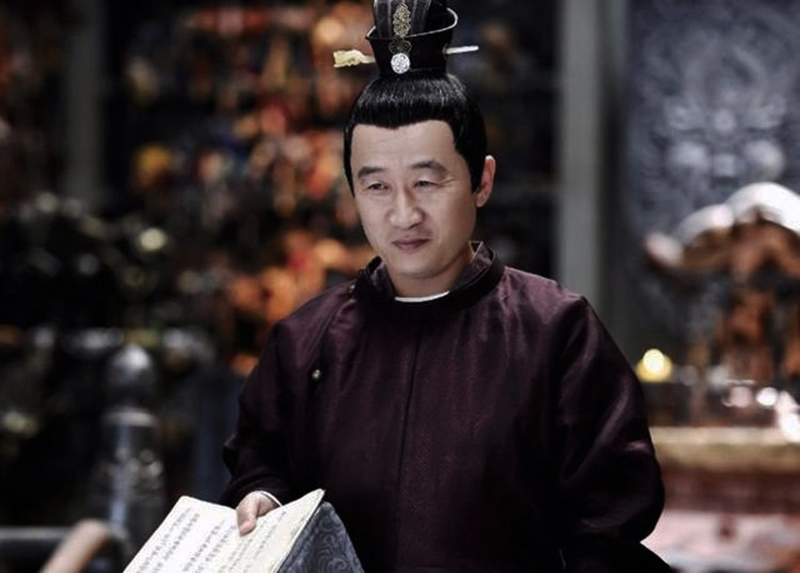
































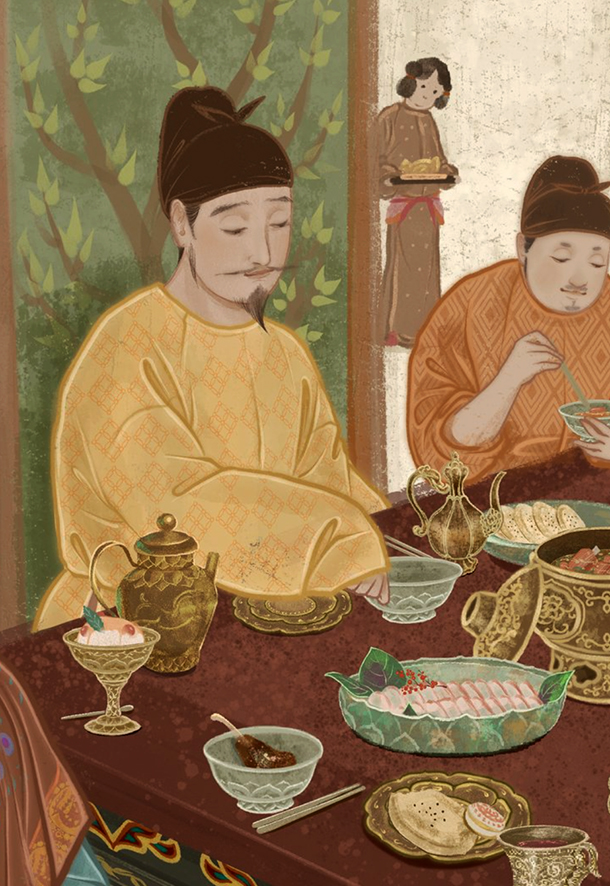




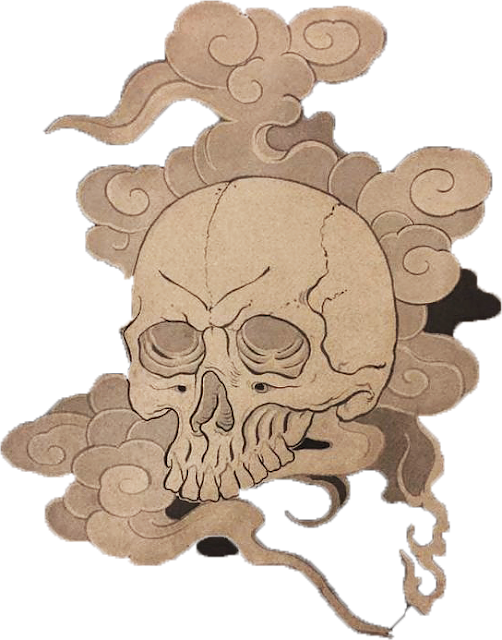
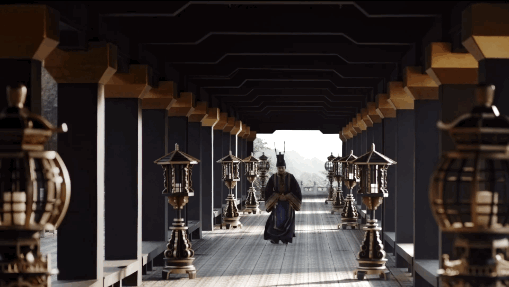















Comments